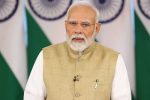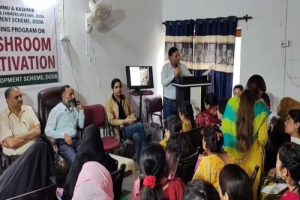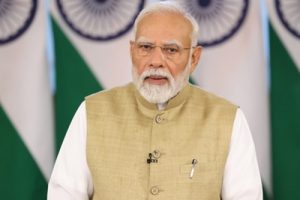Book reading has taken on the characteristics of a cult, where there is no one leader but rather a shared passion for reading that drives us all to look everywhere for books to read and helps us develop these traits. Here is the new list of books you may want to read.
Eating the Present, Tasting the Future by Charmaine O Brien
Eating the Present, Tasting the Future ventures ‘off the plate’ to journey through India’s contemporary foodscape to discover the myriad forces transforming what, how, and where Indians are producing, trading, and eating their food. At a time when food and our relationship with it are topics of increasing global interest, this is a timely, and important, work, offering a unique insight into a complex society.
Sovereigns of the Sea by Seema Alavi
This definitive book on the Sultans of Oman is a thrilling historical account of their action-packed battles, daring expeditions, epic triumphs, and ingenious politics in the long nineteenth century. It puts the optic of ‘micro-history’ on their fascinating lives as they navigated the geopolitics of their time and propelled the politics of the Western Indian Ocean. Keeping a sensitive finger on the specific temporal and spatial moments in the maritime space that they navigated, it explores their key role in shaping the politics of the Ocean and nurturing the Omani Sultanate on their terms. The groundbreaking narrative sheds light on the role of the Sultans as agents of change, challenging the Eurocentric narrative that views the Indian Ocean as framed in the history of Western imperialism and capitalism alone.
India’s Finance Ministers by A.K. Bhattacharya
From Independence to Emergency: India’s Finance Ministers 1947-1977 is the story of India’s unforgettable finance ministers who shaped India’s economy in the first thirty years after Independence. The book highlights the significant difference that these finance ministers made to the management of the Indian economy and to the policy evolution of the government, and who thus left an indelible mark on the psyche of Indian citizens. It attempts to measure the impact these decisions left, not only on India’s economic system but also on its political system, and looks at to what extent the decisions were influenced by the socio-economic backgrounds of the finance ministers. Full of interesting anecdotes, the book is the first in-depth account of the crucial role these finance ministers have played in the functioning of India’s economy.
India in Search of Glory by Ashok Lahiri
Economist and political leader Ashok Lahiri in his new book has studied and presented a chronological account of the evolution of economic policies, starting from 1947. The book chronicles the evolution of economic policies since Independence. “This book is an attempt to decipher improvements in the political calculus, as the country develops and the backwardness of the people diminishes, for democracy to start yielding better dividends in the Indian search for glory,” Lahiri writes.
Customer in the Boardroom by Rama Bijapurkar
Rama Bijapurkar presents a compelling treatise on how to develop a business strategy around the world of customers rather than the world of competitors. She draws a sharp distinction between the ‘market = industry size’ and the ‘market = customers with needs’ bases for developing business strategy. Replete with anecdotes, examples, and cases from India Inc, the book draws on the author’s vast experience in consulting and teaching and places equal emphasis on both the theory and the practice of bringing the customer into the boardroom.
Oblivion and the other stories by Gopinath Mohanty
Oblivion and Other Stories is an anthology of twenty short stories by Gopinath Mohanty, the doyen of Oriya (now Odia) literature. Originally written in Oriya by the Padma Bhushan awardee, these have now been translated for the first time into English and recreate the social life of mid-twentieth century India. The embellished past in the stories is not one of nostalgia but a full-toned portrait of society. Marginalisation is the running thread: dispossession, disenfranchisement, class/caste social exclusivity, and lack of education.
Unfiltered – The Leader and His Coach by Saurabh Mukherjea
A pioneering book, Unfiltered: The CEO and the Coach, for the first time, opens the doors that normally shield the confidential world of coaching conversations. The book, through its candour, helps readers fully grasp the life-changing impact that coaching can have. Conceived as a leadership development book, the authors share the narratives (both individual and mutual) of their partnership over the course of five years. The resultant narrative provides not just unique insights that executives and entrepreneurs will find useful for their own development but also deep insights into how, by understanding ourselves, we move towards mastery over the world at large.
The Portrait of a Secret by Tarun Mehrishi
A novel inspired by true events, a page-turner in the true sense of the term, The Portrait of a Secret by Tarun Mehrishi. Tracing the story of two paintings by legendary artist Nicholas Roerich and their central role in a battle for geopolitical power between the Indian RAW, the Pakistani ISI, and the American CIA, The Portrait of a Secret is fast-paced and unputdownable, thanks to a gripping non-linear plot that culminates in an astonishing ending. Weaving path-breaking historical events, such as the Bolshevik revolution, the creation of Bangladesh, the accession of Kashmir to India, and Osama bin Laden’s end, into this work of fiction, the book has everything that fascinates a reader.
Gen Bipin Rawat Biography by Rachna Bisht Rawat
Bipin: The Man Behind the Uniform is the story of the NDA cadet who was relegated in the third term for not being able to do a mandatory jump into the swimming pool; of the young Second Lieutenant who was tricked into losing his ID card at the Amritsar railway station by a 5/11 Gorkha Rifles officer posing as his Sahayak; of the Major with a leg in plaster who was carried up to his company post on the Pakistan border because he insisted on joining his men for Dusshera celebrations under direct enemy observation; of the Army Chief who decided India would retaliate immediately and openly to every act of cross-border terrorism; of the Chief of Defence Staff who was happiest dancing the Jhamre with his Gorkha troops. Written by bestselling author Rachna Bisht Rawat and featuring in-depth interviews with Bipin Rawat’s friends, family members, and comrades, this book is a befitting tribute to one of India’s greatest and most controversial Generals.
The Big Bull of Dalal Street by Neil Borate, Aprajita Sharma, Aditya Kondawar
This book looks at the life of India’s big bull, as Rakesh was famously known, both as a person and as a professional. Providing a fascinating account of his journey, it analyses the records of Jhunjhunwala’s investments and interviews he has given over the years. More than just a biography, a large section of the book is devoted to understanding the stocks that made him rich and the mistakes he made. Looking at the journey of the legendary investor, the book offers retail investors some useful insights–into the benefits of long-term investing, mistakes one should avoid in the stock market, and risks associated with leveraged trades, among others.
Cyber Encounters by Ashok Kumar and O.P. Manocha
Cyber Encounters delves deep into this nebulous cyberspace, to bring twelve fascinating accounts of cybercrime. Ashok Kumar, DGP, Uttarakhand Police and a veteran in the systematic fight against cybercrime in the state, and OP Manocha, an ex-DRDO scientist, unfold a specific type of cybercrime in each tale, based on a true story. Packed with information on the crime, its investigation, and the apprehending of the criminals, this illuminating insider account is a must-read. As technology has evolved, so has crime. Digital technologies have brought with them a whole host of crimes committed online-unsuspecting people are cheated of crores of rupees, duped by false advertisements on fake websites, incited to click on suspicious links through payment gateways, and download apps that give remote access of their device to criminals. From credit card fraud to phishing, the list is endless.

























Add Comment